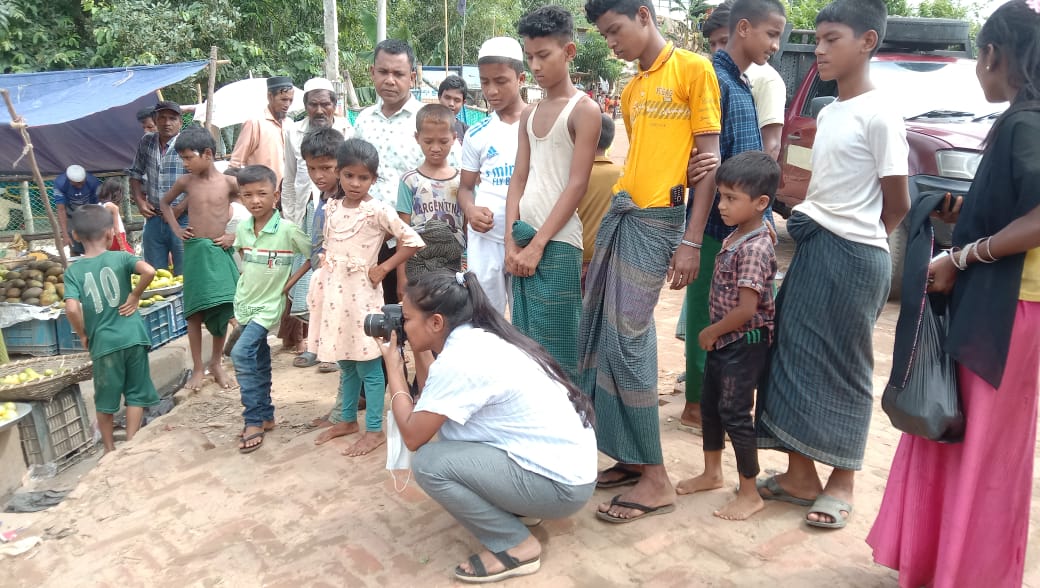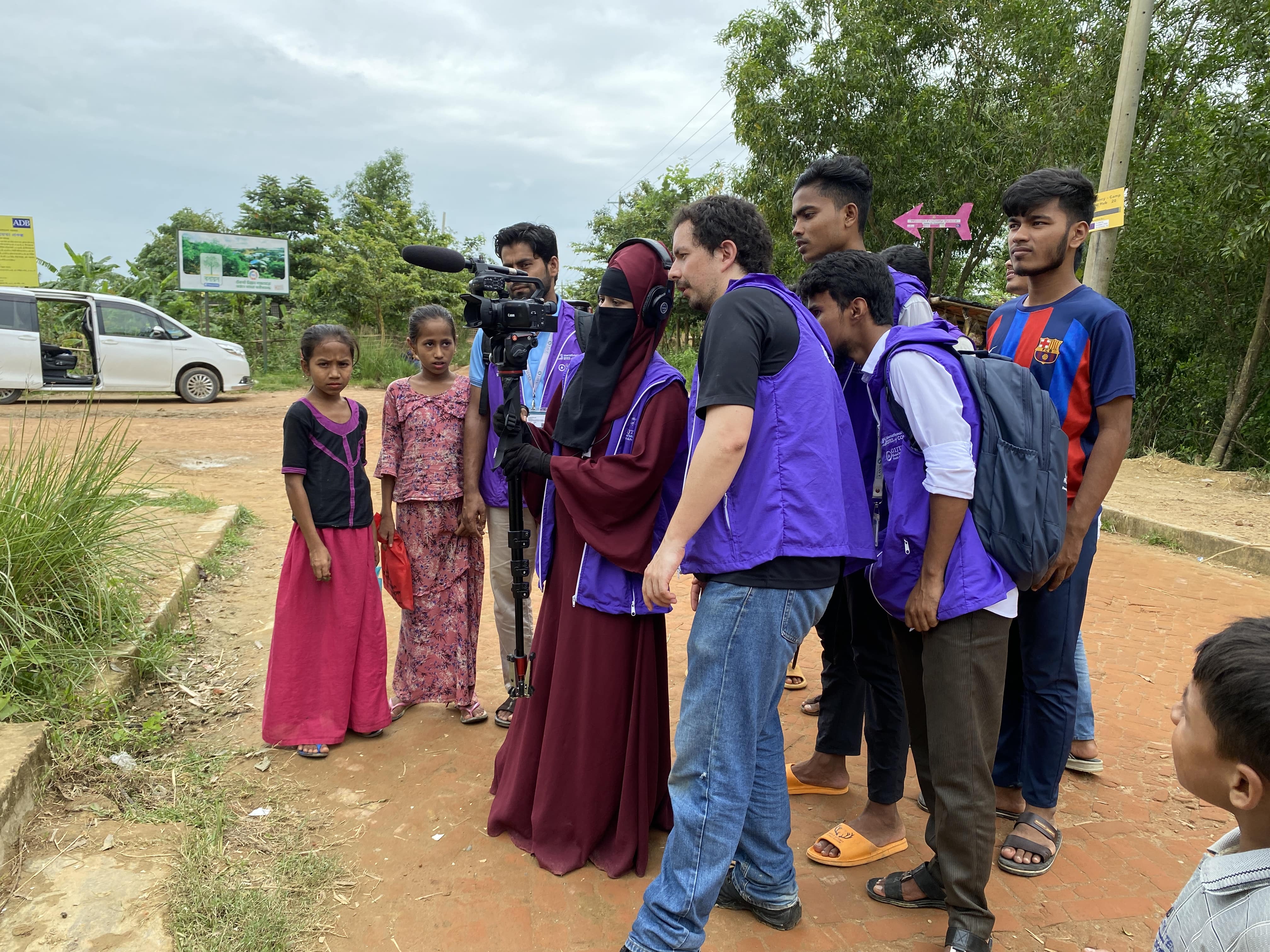Southeast Asia, Visual Arts, Post-war Reconciliation, Trauma Healing

Life Happens Still is a short documentary film made by members of a community in a Cox’s Bazar refugee camp in Bangladesh, with training from Historias en Kilometros (HEK). The project involved filmmaking training for the camp’s members, including both Bangladeshi artists and Rohingya camp members, and creation of a 10-minute film. The film tells the story of the everyday life of the camp’s members, serving as a medium for documenting and preserving the memories of the refugee camp's community members.
It was the first film officially shot in the camp with all-needed permission, and the first to be presented to the Rohingya community inside the whole camp, as it was done by the camp community. HEK has carried out its training methodology in Colombia since 2019, and with this project they managed to share their methodologies internationally, focusing on creating South-to-South alliances. Their goal is to connect communities in Asia, Africa, and South America. Check other case studies from the same organisation Truth Commission and Film, and International Community Filmmaking Festival.
Common struggles in refugee camps often include overcrowding, lack of access to clean water and sanitation facilities, limited healthcare services, insufficient food supplies, and challenges in providing education, especially for children. In Cox’s Bazar, authorities have struggled to cope with human traffickers smuggling Rohingya into and out of Bangladesh, and exploiting women and children for the region's sex trade. Additionally, refugees face psychological distress, uncertainty about their future, and a lack of legal and employment opportunities.
HEK ’s biggest challenge in getting involved with members of Cox’s Bazar was, besides not speaking their language,the struggle to get permission for filming. Moreover, it took longer than expected (around 6 months) for organisers to understand the differences in perspectives of the different communities within the camp in how they perceive storytelling, what it means for them to have cameras, to share their stories.

Storytelling through film
Short films as memory tools for future generations


Film stays as documentation of the lives of people who were living under specific conditions in refugee camps, serving as a memorial to their lives and essential knowledge for future generations.

By producing a film with the community in the refugee camp, it fostered mutual connections and dialogue among different ethnic groups in the camp.

Showing it to the world through community screenings, the project places a strong emphasis on cultivating new audiences, such as camp members, that are receptive to these narratives and can contribute to social change.

The stories we tell will become memories so the next generation can know how we lived our lives here, in the refugee camp.
